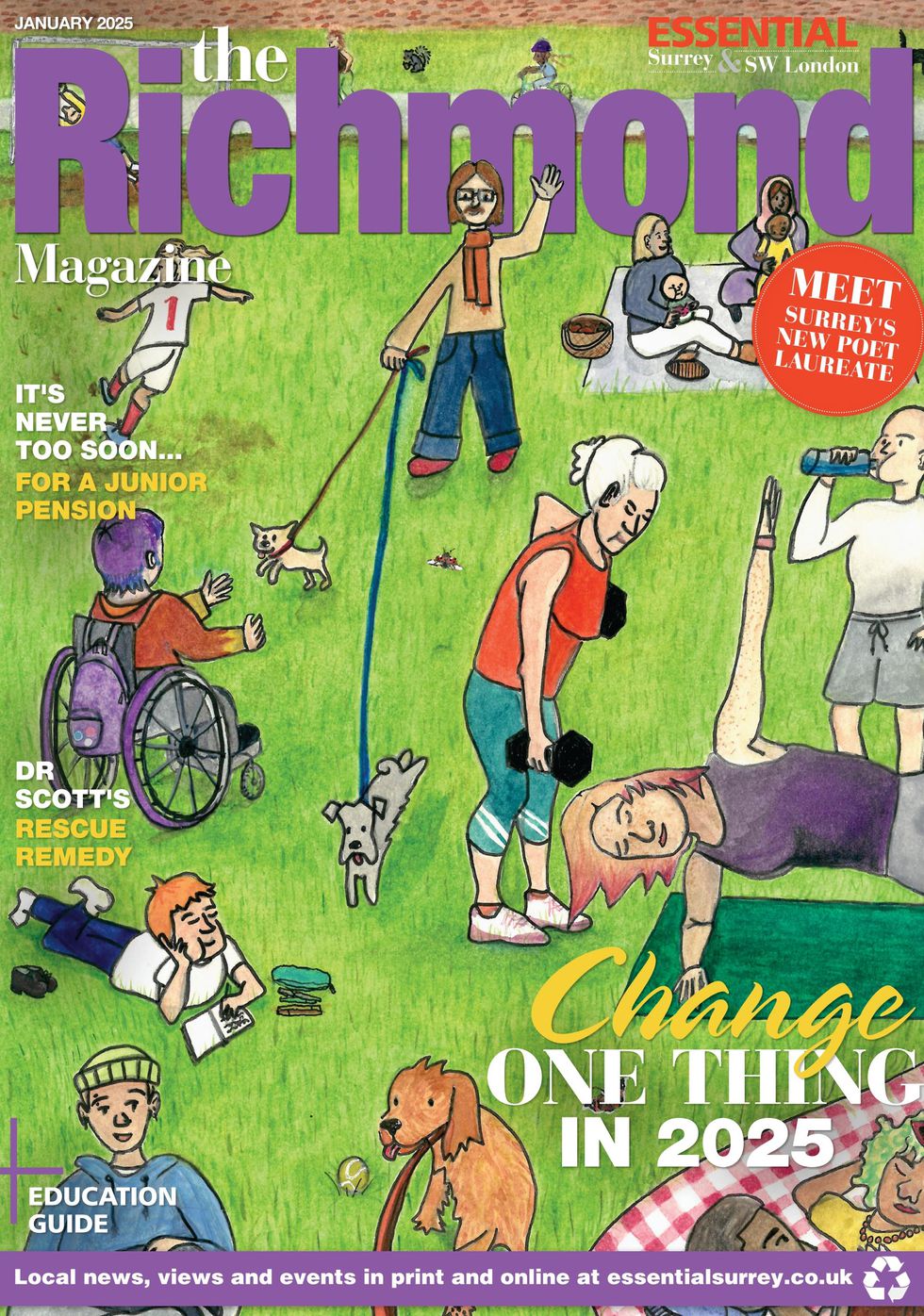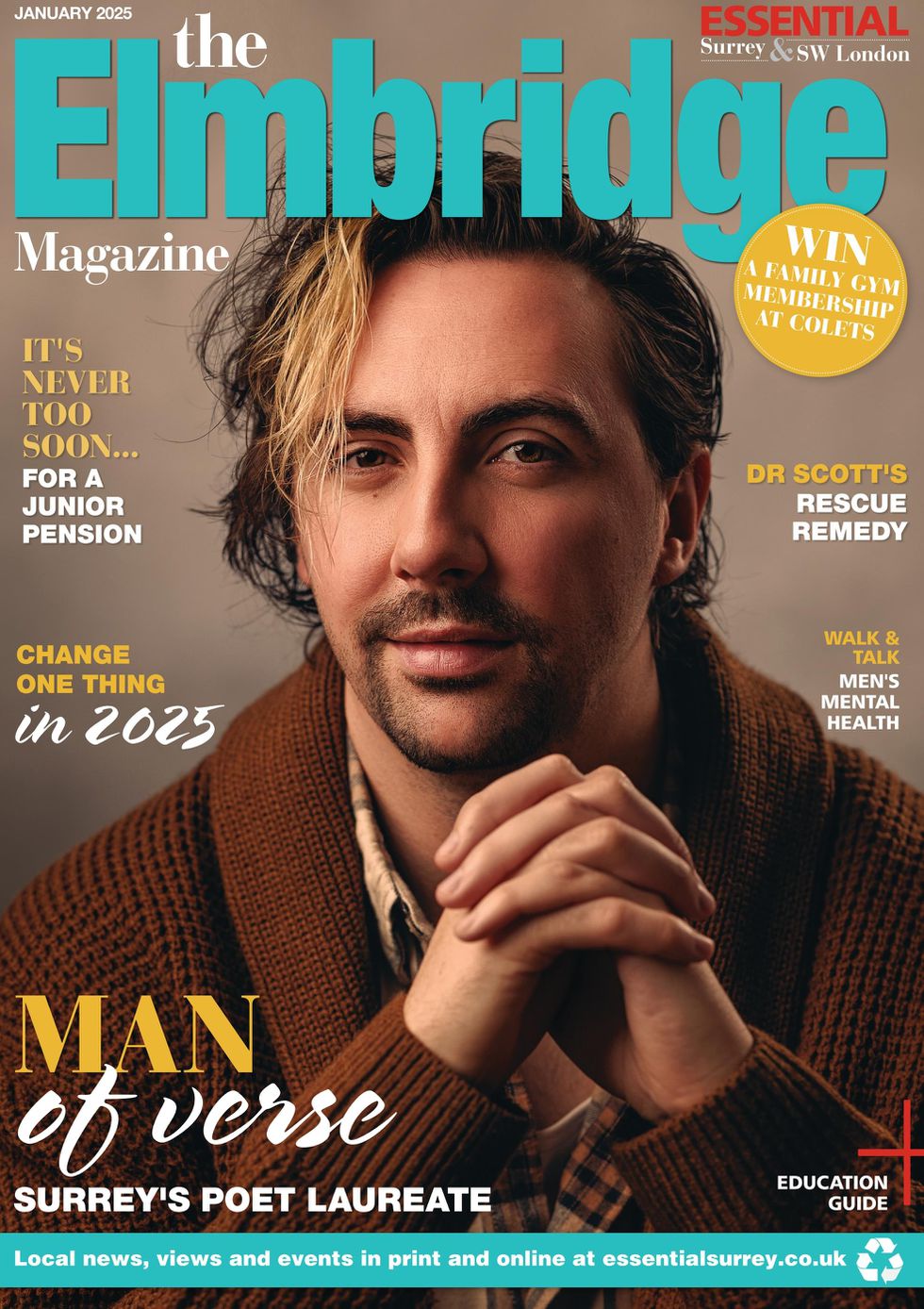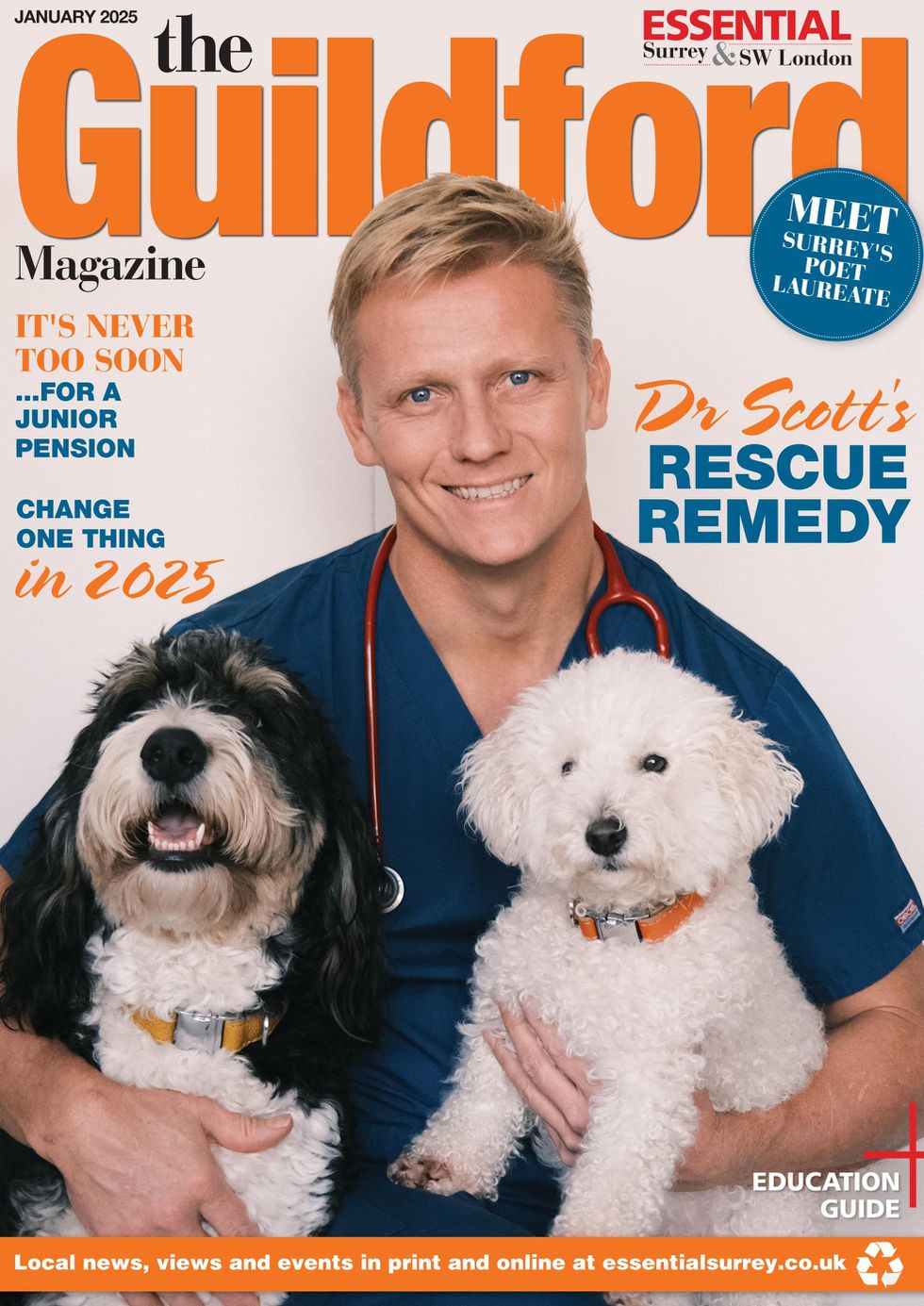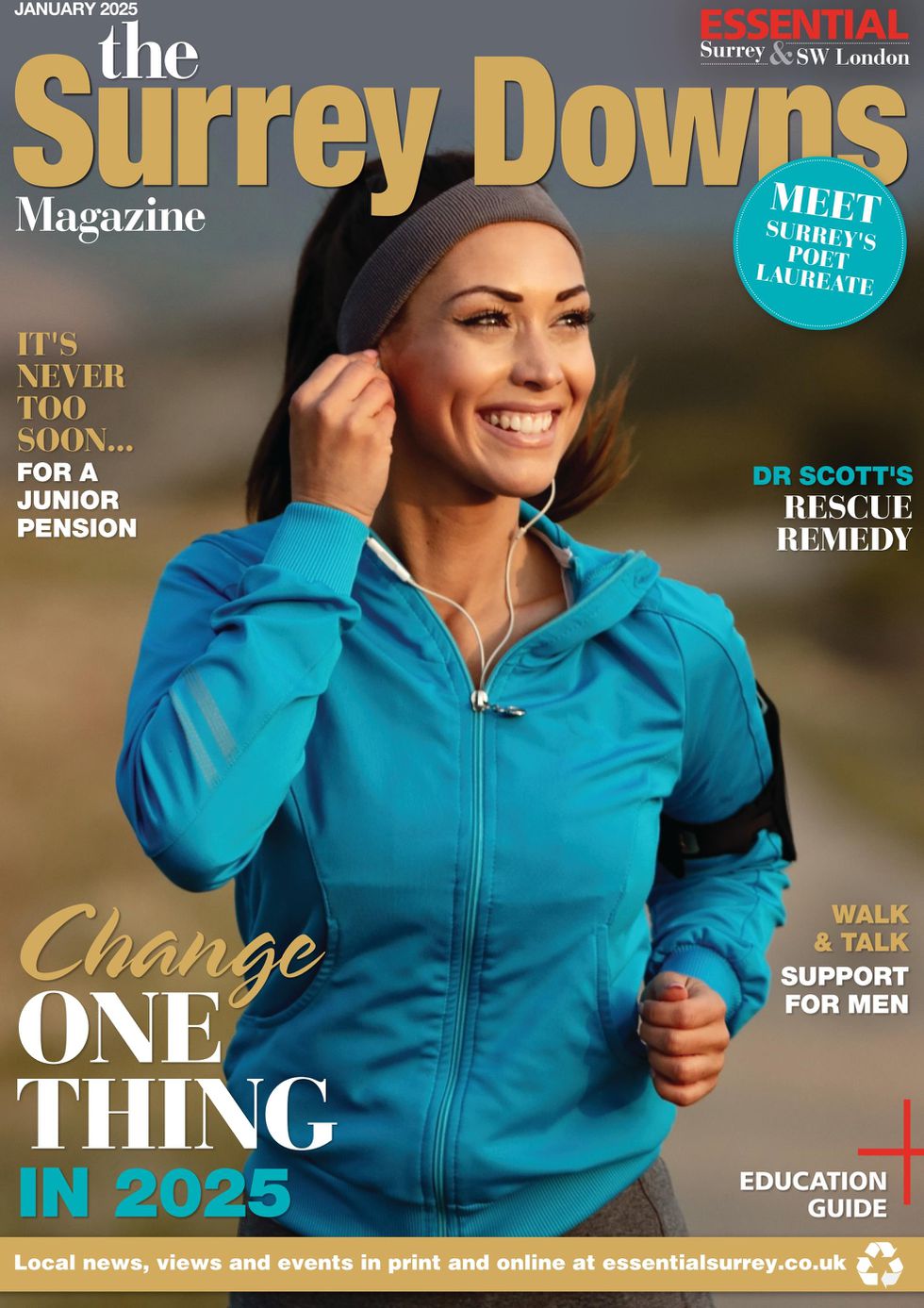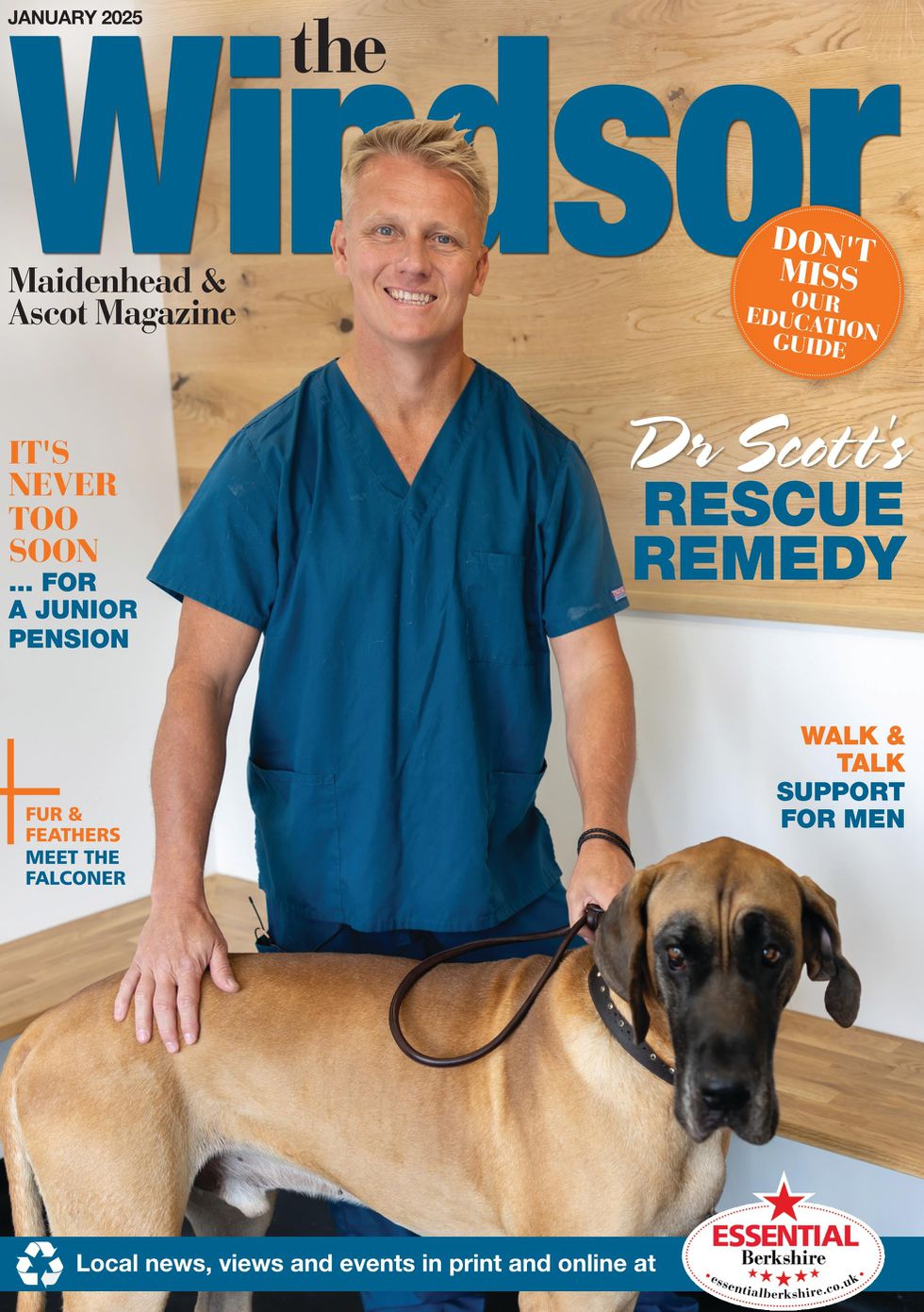It shouldn’t happen to a vet, but Godalming’s Noel Fitzpatrick became an unlikely TV star. Emily Davis meets Channel 4's latest hero: The Supervet

- We have a more recent interview with Noel about his upcoming One Live Festival which you can read by clicking here
Noel Fitzpatrick is late for our interview, and no one in his Godalming veterinary practice seems to have a clue as to where he might be. Tardiness is not a trait I suffer gladly, but it transpires that Noel – star of the Channel 4 series The Supervet – has had a string of high-pressure consultations. As a lifelong animal lover, I’m happy to forgive.
“Sorry!” he laughs, bustling in. “You caught me on top of an Irish Wolfhound.”
Gosh, thinks I.
“He had a polyp in his neck. If we don’t act soon he will be paralyzed… but I’m all yours now – for a few minutes anyway.”
I am lucky to have secured this slot. Notoriously hard to track down, Noel is one of those rare humans in the mould of Abraham Lincoln or Margaret Thatcher: always busy, never asleep.
“In the morning I consult, then I’m usually in theatre from 1pm until midnight. I’m used to it. I made a choice to live like this a long time ago. I’m lucky enough not to have a job: what I have is a vocation. You do what that vocation requires.”
Noel certainly does that. Born in Laois, in the Republic of Ireland, he grew up on the family farm, where his earliest memory was of failing to save a lamb. Never, he promised himself, would he let that happen again. So, it was off to University College Dublin to qualify as a vet, before moving to England to practise at the age of 22.
In the past decade alone he has devised, tested and performed more than 20 new procedures and implant systems, including new joint replacement techniques, limb amputation prosthetics and spinal disc replacement.
This is a man who gave Mitzi, the German Shepherd, a new leg which moves like that of a normal dog – a first in veterinary history – using a computer to model the dog’s gait. This is a man who gave a cat called Oscar prosthetic paws, after he lost his originals in a combine harvester accident. Since opening in 1997, Fitzpatrick Referrals has grown into the most advanced small-animal clinic in the UK, with MRI and CT scanners, and the only Eklin direct digital radiography system for small animals in the land. A hydrotherapy pool and acupuncturist are available to help with rehabilitation.
Ultimately, however, Noel believes that it is people – not gadgets – that have made his practice what it is today.
“Technology is nothing without people. We have over 100 staff working here now, all of whom I have hired personally. Their hearts are bigger than their brains. And I don’t mean that as an insult – trust me, they have big brains. But nothing you can teach someone is of any value if they don’t care. Everyone here cares so much. I call them the guardians of unconditional love.
“The thing is, we live in a world where we are constantly consumed by bulls*** and materialism. What really matters is whether someone is holding your hand today, and if not, why not. Whether it’s with an animal or a person, it’s vital to have that connection in your life.”
But while Noel may be holding hands with all the dogs and cats in Godalming, he’s far from developing the same connection with a human being.
“Oh god,” he sighs, and I sense a wry smile escaping. “This job is not at all conducive to having a girlfriend or a family. It’s probably fair to say that I could do with a better balance. Surgery doesn’t scare me at all: life scares me. Perhaps I do avoid the pain and hardship of real life by surrounding myself with the drama of animal life and death every day, and to an extent that’s indulgent.

“But if you and I were in a relationship and we were going out for dinner, and I suddenly found out that there was a cat or dog out there dying, I would choose to save that animal over taking you out any day.”
Thanks a lot, I think, trying not to take it personally. Pity the girls who have had their hearts broken by Noel, while he was out saving moggies from cardiac arrest.
“Early in my career I was intensely frustrated by the lack of options I could offer,” reflects the unlikely TV star, who counts the pooches of Chris Evans and Michael Ball among his celebrity clientele.
“I felt powerless and helpless. I realised that I could spend the next 25-30 years feeling like that, or I could do something to make a difference. I know it sounds evangelical, but this is what I believe now – we really can save the world if we want to. With the five animals I’ve seen today, I’ve saved the world already. I have helped my corner of the universe.”
Four years ago, six million viewers tuned into BBC series The Bionic Vet, and today the practice draws referrals from all over the UK, with extra jet-setter pets flying in from abroad. As Channel 4's The Supervet takes our screens by storm, it might seem that Noel has become unstoppable. Not even The Supervet, however, can magic away the harsh reality of death.
You can check out some of the Supervet's bionic case studies by clicking here.
“I stand at the precipice of death and say: ‘We have to make a decision.’ You can’t save every case – you wouldn’t want to either. I only try to save an animal when it’s in their interest and won’t create even more suffering. But where something can be done, and that something will lead to a positive future for that animal, I’m willing to try.”
It’s this willingness to push the boundaries of possibility that sets Noel apart from his contemporaries. Yet the future may bring more vets in his proactive mould. For in addition to his many other commitments, Noel is currently helping to set up a new veterinary school at the University of Surrey. Here students will be actively encouraged to believe that they can make a real difference to animals; that putting them down should be a weapon of last resort.
“It’s just a completely different way of thinking, really. They don’t know what they’re in for yet!” laughs Noel.
Nor are vets the sole potential beneficiaries from his groundbreaking work. Many of his ‘world firsts’ – including cartilage transplants, cancer prosthetics and limb salvage surgery – have since been successfully performed in humans.
“I believe in one medicine; the idea that vets and doctors should work together and share information. If you make progress clinically, you have a duty to share that advance.
“Unfortunately the two professions split in their thinking 250 years ago, since when doctors have never listened to vets. Getting doctors to listen to my research is my hardest challenge. I keep knocking at their door, but I’m still waiting for an answer!”
Sounds as if a super effort may be required.
You can check out Noel's website, and follow him on Twitter or Facebook




